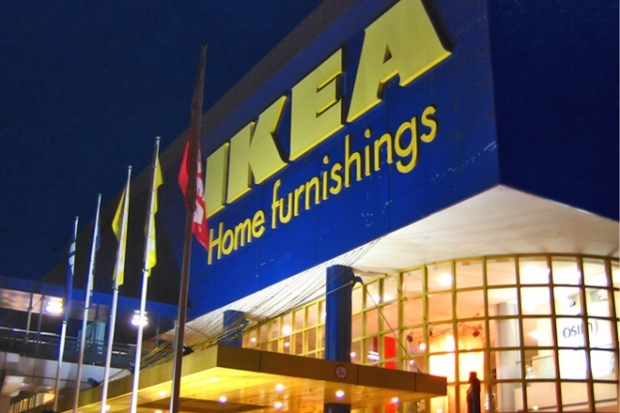
Globally, the Ikea Group's net income for the financial year 2014 amounted to €3.3b – the same as that reported for the previous year. Market conditions continued to improve with strong performance in China and North America, and an upward trend in Europe. There were 716 million visits to the Ikea Group stores reported, and more than 1.5 billion visits to ikea.com.
“FY14 was a good year for Ikea," says president and CEO Peter Agnefjll. "I am happy to see increased growth in all our sales channels – in existing stores, in the opening of new stores and in ecommerce. We reached some important milestones towards becoming energy independent and saw a 58% increase in the sales value of products that enable people to live a more sustainable life at home. Sustainability is an integral part of our business strategy.”
Total sales increased by 5.9% (adjusted for currency impact) from the previous year to €28.7b. Together with the rental income from the shopping centre business, total revenue amounted to €29.3b (+2.8%). The Ikea Group gained market share in almost all markets, and entered a new country, Croatia. The largest markets in terms of sales were Germany, the US, France, Russia and the UK.
“We have an ambitious growth agenda and at the same time we’re determined to have a positive impact on people and the planet. Our size gives us a unique opportunity to make a difference and contribute to positive change in society, for instance by making energy-efficient lighting both affordable and attractive for millions of people,” continues Peter.
Within its own operations, the Ikea Group produced renewable energy equivalent to 42% of the total energy consumed, and aims by the end of 2015 to have invested and committed to invest €1.5b in renewable energy projects – chiefly offsite wind farms and photovoltaic (PV) panels.
€200m was also set aside to a new loyalty programme, Tack!, and the amount for the One Ikea Bonus Program was increased by €98m, as a thank you to Ikea's co-workers.
“A key factor to our strong performance is that we have a long-term view, and don’t aim to maximise short-term profits. We strive to continuously create better products at lower prices to our customers and to make substantial investments in our future,” concludes Peter.





